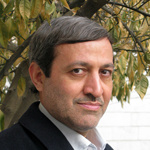All-Out Strategic Confrontation

2) One may claim that the ruling party’s failure in midterm elections is not a new phenomenon. This is true, but the domestic and international circumstances are not analogous to those during Ronald Reagan’s and Bill Clinton’s tenures. On the domestic scene financial challenges, particularly unemployment, are Obama’s biggest problem. On the international stage, the United States is still engaged in wars in Afghanistan and Iraq, and Iran’s nuclear program is a project as yet unresolved. The fervent enthusiasm over Obama’s presidency as the first African-American president who had Muslim blood in his veins and was young, also raised expectations for his agenda. The premature Nobel Peace Prize also backfired and projected the image of an efficient president that was too early for Obama. Many ordinary Americans and politicians forgot that Obama inherited the radical ideological and unrefined policies of the Republican Party, and the consequences of George W. Bush’s blunders. His predecessor radicalized the domestic and international stage, leaving Obama a devastated legacy that will take a tremendous amount of time to be reconstructed.
3) Although the United States’ strategic policies won’t shift, even in case of a different composition in the Congress or a different president, a shift in the diplomatic approach after the midterm elections is predictable. The U.S. foreign policy climate is becoming more unbearable on a daily basis and early signs of a possible diplomatic shift in U.S. foreign policy are gradually appearing. A few days after the election, comments by influential Republican Senator Lindsey Graham should alert every political observer.
Sarah Palin, who has now turned into the unofficial speaker of the Tea Party, is also worth noting. Using religious rhetoric tailored to her conservative followers in the Tea Party movement, she claimed that a nuclear Iran could “lead to Armageddon”. The Israelis are not idle either, fueling the tension over Iran’s nuclear program to accelerate a confrontation between Washington and Tehran.
Ironically, the U.S. military seem to be the least hawkish party in these political debates. While they serve as enforcers of the orders of American politicians, common sense and freedom of speech urges them time and again to warn about the threat of opening a third front in the Middle East while the country is still engaged in unfinished wars in Afghanistan and Iraq.
The outcome of the Republican congressional victory will be further pressure on Iran in terms of fiscal, trade, transportation, and other restrictions. Unilateral, multilateral and international tactics will proliferate. Besides, more Islamic Republic officials may be accused of violation of human rights in order to pressure Iran in every possible aspect and force it to moderate its policies on its nuclear program, the Middle East Peace Process, and human rights issues.
Nevertheless, while Washington and its allies are trying to break down Iran’s resistance through biting sanctions, clearly the weight of sanctions is still not enough to succumb to West. I believe that the struggle between the Islamic Republic of Iran and the West is moving to a point that I call ‘all-out strategic confrontation’. On the one hand, Iran’s nuclear activity at its maximum potential is intolerable for the West, and on the other hand, it is unstoppable for Iran. The fate of this strategic encounter is a growing struggle which may lead to military encounter.
Under Article 41 of the UN Charter, Iran is now facing sanctions and an economic embargo in some key sectors of its economy. However it seems that sanctions are not still at their maximum and could become even more stringent. In this context, a military attack based on Article 42 of the UN charter would not be entirely impossible. It is unlikely that Israel or the United States would strike Iran unilaterally and without a U.N. Security Council green light. Washington is still stuck in Iraq and Afghanistan and no global consensus over a military attack on Iran has formed yet, though it may come into existence in the near future.
In the gloomy post-midterm election climate, when dark clouds are moving toward Iran’s political-security firmament, the overjoyed reaction of Iranian conservatives to ‘Obama’s defeat’ and ‘The Islamic Republic’s victory’ is nothing but naiveté. With all due respect, I suggest these fellow countrymen study and think more carefully. If they do, they will discover whether we have made any political, economic, security or social progress, and will realize how things have changed after Obama’s defeat in the congressional elections.
In view of the new situation, Iran’s diplomatic body can choose either of these two paths, although they must take responsibility for the consequences of their decision: a) a passive policy which tends to ignore reality and rationality, fails to notice the different aspects of a problem, follows a reductive approach to complicated issues, is boastful and adventurous, increases international isolation and ignores the plummeting state of the country in developmental criteria –particularly during the past five years; or b) an active policy which is down-to-earth, is aware of what it possesses and lacks, is reflective and knows its limits, tends to expand the circle of friends in the international community, is not restricted to minor friends such as Venezuela, Bolivia, or the Comoros Islands, and aims to improve Iran’s ranking in developmental charts.
It is time to dispense with passive attitudes in foreign policy. As the first Shi’a Imam, Ali (AS) said, people should be the “children” of the age they’re living in. It may be an uphill mission, but it’s not impossible. Increasing knowledge, improving rationality and exploiting human experiences, free thinking, dialogue and methodological decision-making can help us move in this way. Any suggestion for overcoming our country’s challenges will be futile unless the Islamic Republic shifts to an active diplomacy. It is only in this way that our nuclear program will find a solution, national security will be reinforced, and we can again move upward in developmental rankings.

